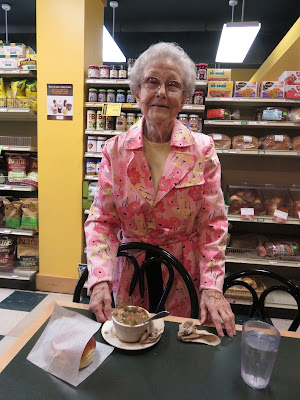Dr. Martin Brokenleg shares a lifetime of experience and research on at-risk youth
 |
| Martin Brokenleg |
By Mark Nicklawske
People growing up in troubled environments face difficult life obstacles, but through a powerful natural resilience and greater community support, these children can still find success, said a noted author, a doctor of psychology, and retired Native American Studies professor.
Dr. Martin Brokenleg shared his life experiences and decades of career research during a Woodland Hills Community Event at Mitchell Auditorium on the campus of the College of St. Scholastica in Duluth on January 17, 2017. More than 350 people attended the presentation.
 |
Martin Brokenleg speaking at the College of St. Scholastica.
|
Brokenleg told the audience that previous generations have attempted to change overwhelmed cultures through unsuccessful methods like residential schools, failed trauma treatment, and a focus on problems rather than success. These methods have never led to positive change.
“There’s a dark energy for every generation that doesn’t do its healing work well,” he said. “For example, you don’t learn to be a parent in a residential school environment.”
When children are removed from their families and forced to learn a new culture away from home, an entire way of life is placed at risk. Brokenleg said past residential schooling has led to “intergenerational trauma” for cultures like Native American, Irish and Ethiopians. (Editor's note, this is also true for African Americans)
Without family support, children are exposed to addictions, abuse, domestic violence, incarceration and neglect.
“Traumatized people don’t wake up in the morning and think about going to the gym,” he said. “They’re just glad they woke up.”
Brokenleg, a Lakota and member of the Rosebud Sioux tribe, grew up in south central South Dakota as a first wave baby boomer. Ten other children were born the same year in his neighborhood. “I am the only one left,” he said.
All of his childhood peers were victims of intergenerational trauma, said Brokenleg—a trauma afflicting a Native American culture that has been under attack for generations.
“If somebody convinces you you’re just not good enough, nobody will hold you down,” said Brokenleg. “That’s because you’ve been holding yourself back in your own mind.”
Some young people survive only on their strong will and resilience.
Brokenleg studied psychology and education for 30 years at Augustana University in Sioux Falls where he served as a professor of Native American Studies. In 1990, along with two educators, he developed a model for positive youth development called the Circle of Courage. The model was highlighted in the book, “Reclaiming Youth at Risk,” which has been published in 15 languages around the world.
The Circle of Courage focuses on four areas of youth development: Belonging, mastery, independence, and generosity. The model is designed to educate the heart, character, and soul of an individual as much as the mind.
“Many times your kids will forget what you said, but they will never forget how you made them feel,” said Brokenleg. He told a story about his aunt walking five miles in a snowstorm to see him off to high school. The moment made him feel like an important part of the family.
Giving children a feeling of belonging is an important first step. Gang culture thrives on artificial belonging, said Brokenleg. It is up to families and schools to supply the real thing.
Children must be exposed to many interests so they can discover their talents and find success. Success then leads to independence and a healthy adulthood.
Brokenleg pointed to a shift in child psychology studies since the 1950s. In the past, psychologists studied what went wrong with a group and tried to fix the problem. Instead, methods changed to examine what went right with a group and promote those discoveries.
Experts learned generosity through things like compliments, affection, empathy, and volunteer service often led at-risk children to make successful choices. Brokenleg encouraged parents and educators to be generous, and never give up hope in improving the lives of young people.
Native Americans use the drum circle as an important tribal gathering point. Each member of the tribe plays a role in producing the instruments, rhythm and sound. Brokenleg said the same idea must be applied to raising young people.
“Working with these methods, it gives them support, it gives them spiritual well-being and that’s the role for all human beings,” he said.
Mark Nicklawske lives in Duluth and writes for Woodland Hills. The piece was originally published at www.woodlandhills.org and reprinted with permission from the writer.


















